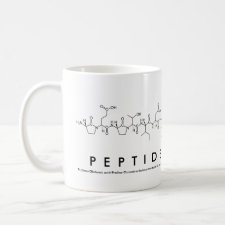
Authors: Hou HQ, Jin YL, Xu K, Sheng L, Huang YY, Zhao R
Article Title: Selective recognition of a cyclic peptide hormone in human plasma by hydrazone bond-oriented surface imprinted nanoparticles.
Publication date: 2021
Journal: Analytica Chimica Acta
Volume: 1154
Article Number: 338301.
DOI: 10.1016/j.aca.2021.338301
Alternative URL: https://www.sciencedirect.com/science/article/pii/S0003267021001276
Abstract: As a kind of artificial recognition material, molecularly imprinted polymers (MIPs) offer a promising perspective to be developed as synthetic chemical binders capable of selectively recognize biomacromolecules. However, owing to the large size and conformational flexibility of proteins and peptides, imprinting of these biomacromolecules remains a challenge. Novel imprinting strategies still need exploration for the improvement of recognition performance of MIPs. Herein, we developed a hydrazone bond-oriented surface imprinting strategy for an endogenous peptide hormone, human atrial natriuretic peptide (ANP). Surface-oriented imprinting of peptide via reversible covalent bond anchoring approach increased the orientation homogeneity of imprinted cavities as well as the utility of templates. The prepared nanoparticles exhibited high selectivity and fast recognition kinetics for ANP epitope. The dissociation constant between ANP epitope and MIP was measured as 5.3 μM. The applicability of the material in real samples was verified by the selective magnetic extraction of ANP from human plasma samples. This hydrazone bond-oriented surface imprinting strategy provides an alternative approach for the separation of peptides or proteins in complex bio-samples
Template and target information: peptide, epitope, human atrial natriuretic peptide, ANP
Author keywords: Molecularly imprinted nanoparticles, Hydrazone bond, oriented surface imprinting, atrial natriuretic peptide, superparamagnetism, human plasma



Join the Society for Molecular Imprinting

New items RSS feed
Sign-up for e-mail updates:
Choose between receiving an occasional newsletter or more frequent e-mail alerts.
Click here to go to the sign-up page.
Is your name elemental or peptidic? Enter your name and find out by clicking either of the buttons below!
Other products you may like:
 MIPdatabase
MIPdatabase









